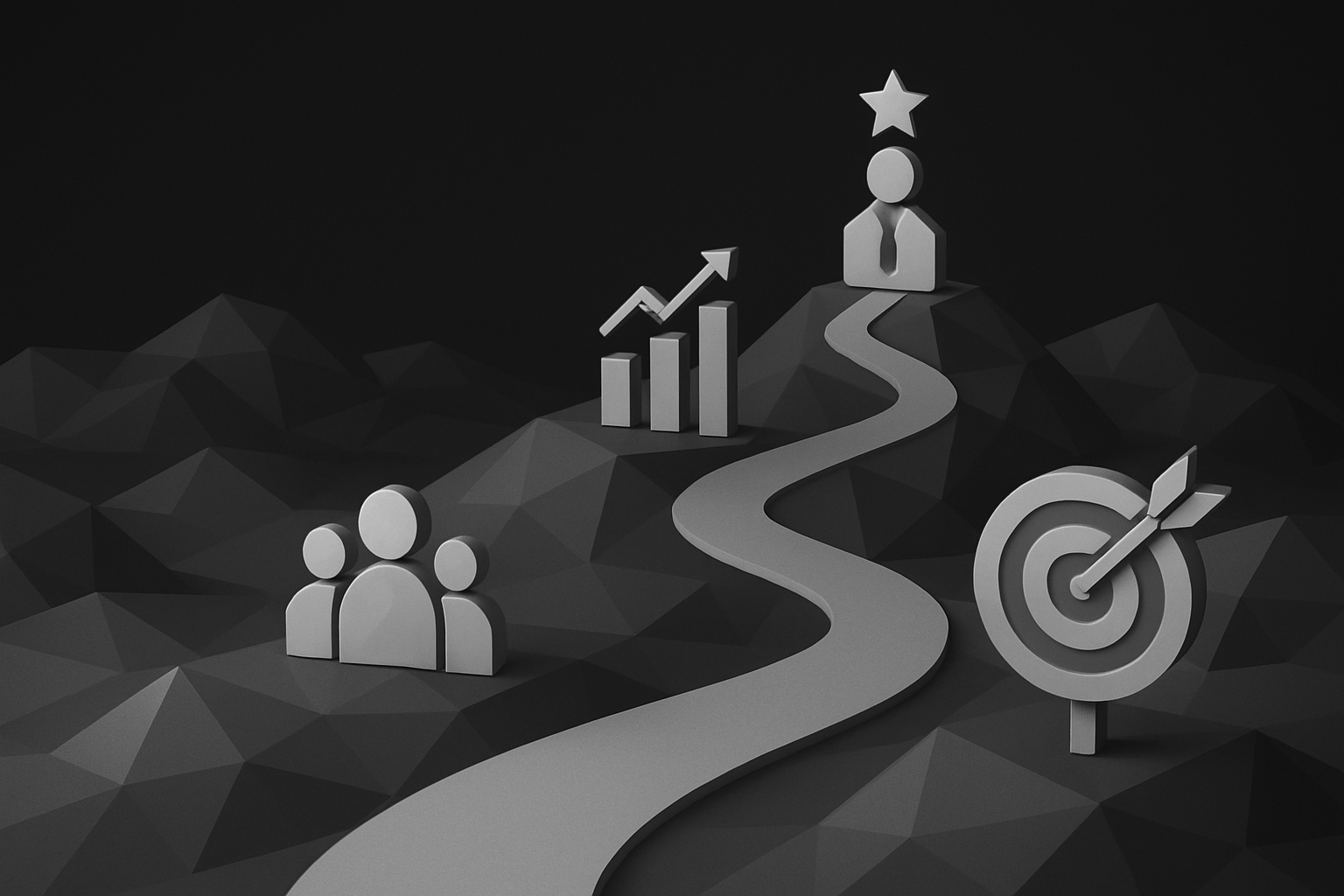The business landscape in 2025 is evolving faster than ever, challenging leaders to adapt or fall behind. In this era of relentless change, only the most adaptable thrive.
This article reveals 12 essential business lessons you need to stay ahead and build lasting success in the coming year. These lessons are grounded in real-world experience and expert advice.
We’ll explore actionable insights on leadership, resilience, innovation, team building, and more. Each takeaway is designed to help you outperform competitors and implement strategies that drive results—starting today.
The Changing Business Landscape in 2025
The pace of change in the business world is accelerating, and 2025 promises to be a defining year. New technologies, shifting consumer expectations, and the need for resilience are rewriting the rules for companies of all sizes. To stay ahead, leaders must embrace modern business lessons that go beyond traditional playbooks. Let’s break down the core forces shaping success in the year ahead.

Shifting Market Dynamics and Digital Transformation
Rapid advances in AI, automation, and remote work are reshaping how companies operate. In fact, over 80% of businesses plan to boost digital investments in 2025, fueling a new wave of competition. Companies that adopted digital-first models during the pandemic outperformed their peers, highlighting the value of adaptability. According to 5 Trends for 2025, embracing these shifts is now a core part of modern business lessons. Agility and openness to change will define tomorrow’s industry winners.
The Importance of Lifelong Learning and Adaptability
Lifelong learning isn’t just a buzzword—it’s a strategic necessity. Businesses that create learning cultures see 30% higher retention, as team members upskill to keep pace with innovation. The best business lessons teach us that curiosity and adaptability are vital for navigating disruption. Encouraging employees to pursue new knowledge, whether through courses or conferences, helps organizations stay relevant and ready for what’s next.
The Rise of Purpose-Driven and Customer-Centric Organizations
Today’s consumers demand authenticity and value-driven brands. Companies with strong missions build loyalty and advocacy, proving that purpose is more than just a slogan. Among the most impactful business lessons is the need to align company goals with social impact and transparency. Brands that connect with their audience on deeper levels see higher customer retention and long-term growth.
Navigating Uncertainty and Risk Management
Uncertainty is the new normal in 2025. Volatile markets, supply chain disruptions, and evolving regulations keep leaders on their toes. Data shows that 70% of executives now rank risk management as a top priority. Forward-thinking business lessons emphasize proactive planning—scenario analysis, contingency plans, and regular risk reviews—so companies can weather storms and seize opportunities as they arise.
Emphasis on Collaboration and Diverse Teams
Diversity isn’t just about representation—it’s a proven driver of results. Teams with inclusive cultures are 35% more likely to outperform financially, while cross-functional groups spark innovation and rapid product development. One of the essential business lessons for 2025 is building collaborative, diverse environments where every perspective is valued. This approach fuels creativity and helps organizations respond swiftly to market changes.
12 Essential Business Lessons You Need to Know in 2025
In 2025, understanding the right business lessons isn't just helpful—it's essential for survival and growth. The most successful leaders are those who can learn, adapt, and apply these insights before their competitors do. Below, you'll find twelve business lessons that will help you build resilience, drive innovation, and stay ahead of the curve.

1. Success Is Not Linear—Embrace the Journey
Many believe business lessons are a straight path to the top, but the reality is filled with twists, setbacks, and pivots. Some of the most accomplished entrepreneurs only found real success after facing—and learning from—multiple failures. In fact, 60% of top CEOs experienced at least one major business failure before hitting their stride.
Think of your business journey as a series of experiments rather than a checklist of milestones. Each setback is a chance to learn, adjust, and grow. Regular reflection and honest course correction are much more valuable than obsessing over perfection. The most powerful business lessons come from resilience and adaptability—measuring progress not just by achievements, but by how you respond to adversity.
By embracing the ups and downs, you’ll find growth in unexpected places. If you want to dive deeper, explore this collection of essential business lessons for more real-world examples and strategies.
2. Build a Culture of Curiosity and Lifelong Learning
The pace of change in 2025 means that business lessons around learning are more critical than ever. Teams that make curiosity and upskilling part of their DNA adapt faster to disruptions and seize new opportunities. Consider companies that offer annual education funds—they see higher innovation rates and significantly reduced turnover.
Leaders should model open-mindedness, encouraging employees to attend workshops, share insights, and experiment with new ideas. Data shows that organizations with strong learning cultures enjoy 30% lower turnover rates. Foster psychological safety so everyone feels comfortable proposing bold ideas or admitting mistakes.
Create internal forums for sharing the latest trends and best practices. And remember, the best business lessons are those that inspire action and experimentation—making learning a continuous journey for the entire team.
3. Take Calculated Risks—But Always Assess the Downside
Taking risks is a vital part of business lessons for growth, but reckless gambles can be fatal. Startups that survived the toughest downturns often did so by minimizing sunk costs and running pilot projects before scaling up. Use scenario planning to evaluate worst-case outcomes—ask yourself, “What’s the worst that can happen? Will you die? Probably not.”
Encourage your team to test ideas through MVPs, small experiments, and rapid feedback loops. Businesses with structured risk assessments are 40% more likely to survive disruptions. Celebrate learning from failed experiments, and view risk as a tool for progress, not a threat.
The most actionable business lessons often come from risks that didn’t go as planned—so make risk management part of your company’s DNA.
4. Build Something Bigger Than Yourself—Focus on Legacy
Too many founders focus on “creating a job” rather than “building a business.” The most enduring business lessons emphasize the power of legacy. Founders who delegate, document processes, and mentor others create organizations that outlast any single leader.
Long-term value comes from clear systems, strong succession planning, and knowledge transfer. Data shows that businesses with robust succession plans are 70% more likely to survive generational transitions. Avoid micromanagement and empower teams to take ownership.
Legacy-driven business lessons remind us that success isn’t just about the present—it’s about building a company that thrives for decades.
5. Hire for Culture Fit and Competence
Hiring is one of the most practical business lessons for sustainable growth. Both skills and cultural alignment are essential. Use structured interviews and real-world assessments to ensure new hires fit your company’s values and mission.
Consider the “LAX Rule”—would you enjoy being stuck in an airport with this person? Teams with high alignment are 50% more productive. Onboard for both skills and values, and regularly refine your hiring process to prioritize diversity and inclusion.
Remember, the best business lessons are learned from teams that work well together, bringing diverse perspectives and shared purpose to every project.
6. Resilience Is Key—It’s Never As Good or As Bad As You Think
One of the most valuable business lessons is the ability to stay calm in the face of adversity. Emotional regulation helps leaders and teams navigate both highs and lows. Companies that managed panic during crises recovered faster and more effectively.
Use data-driven analysis to ground your decisions—don’t get swept away by fear or euphoria. Build financial runways, contingency plans, and encourage open conversations about challenges. Companies with crisis plans rebound 30% faster after major disruptions.
Practice gratitude and perspective-taking. These business lessons will help you weather any storm and emerge stronger on the other side.
7. Align the Team—Everyone Must Pull in the Same Direction
Misaligned goals are a recipe for burnout and underperformance. One of the top business lessons is to ensure everyone is moving in sync. Use frameworks like OKRs or workback plans to clarify responsibilities and track progress.
Regularly communicate your company’s vision and celebrate collective wins. Data shows that teams with shared goals are twice as likely to achieve their targets. Empower cross-functional collaboration and break down silos.
When alignment is strong, business lessons translate into momentum, better morale, and consistent results.
8. Prioritize Value Creation Over Short-Term Gains
Chasing quick wins is tempting, but sustainable business lessons prioritize long-term value. Brands that focused on customer value during downturns outperformed competitors and built loyal followings.
Invest in product quality, customer experience, and reputation. Customer-centric companies see 60% higher profitability. Avoid distractions—focus on your core strengths, solicit feedback, and act on it.
The business lessons that matter most are those that build trust and deliver value, not just boost quarterly numbers.
9. Master Financial Discipline and Multiple Revenue Streams
Financial discipline is a cornerstone of smart business lessons. Avoid unnecessary expenses and invest in growth that builds resilience. Leaders who control spending and diversify income sources are far less vulnerable to market shifts.
Companies with multiple revenue streams are 50% less likely to fail. Practice cash flow management, budgeting, and regular reviews of financial KPIs. Foster financial literacy across the team so everyone understands the numbers.
These business lessons ensure your company can weather uncertainty and seize new opportunities as they arise.
10. Action Beats Anxiety—Execution Drives Results
Overthinking and perfectionism are the enemies of progress. One of the most actionable business lessons is to prioritize execution. Leaders who take small, consistent steps build momentum and gain clarity faster.
“Action-oriented” teams launch products 40% faster. Break down large projects into manageable tasks, use feedback loops, and focus on progress over perfection. Celebrate every step forward.
Business lessons that focus on execution help you move past anxiety and turn ideas into tangible results.
11. Focus Is Your Greatest Asset—Avoid Distractions
In a world full of noise, focus is a superpower. Legendary leaders like Bill Gates and Warren Buffett attribute their success to ruthless prioritization—one of the most timeless business lessons.
Eliminate nonessential tasks and streamline processes. Teams that focus are 70% more effective in reaching their goals. Set clear priorities, use tools to block distractions, and revisit objectives regularly.
The best business lessons remind us: concentrated effort yields exponential results.
12. Learn From Failure—Iterate and Improve
Failure is inevitable, but the most important business lessons come from how you respond. Leaders like Richard Branson credit failure as their greatest teacher. Foster a culture where mistakes are discussed openly and constructively.
Companies that analyze failures improve performance by 25%. Build systems to capture lessons learned, encourage resilience, and use post-mortems to inform future strategies. For more on developing high-income skills that contribute to this mindset, see high-income business skills.
Embrace failure as a stepping stone—these business lessons will drive continuous improvement and long-term growth.
Practical Strategies for Applying These Lessons in Your Business
Adapting to tomorrow’s challenges requires more than just theory—it demands action. Here’s how you can put the most important business lessons into practice, turning insights into results for your organization.

Creating a Roadmap for Implementation
Start by translating each of your business lessons into clear, actionable steps. Use checklists and workflow templates to embed these lessons into daily routines. Assign ownership for each initiative and set measurable goals to track progress. Regular reviews help keep everyone aligned and agile.
- Break down lessons into specific tasks
- Assign champions for accountability
- Set timelines and track milestones
When you operationalize business lessons, you ensure they drive change—not just sit on a PowerPoint slide.
Building a Resilient, Learning-Oriented Organization
A culture of continuous learning is critical for applying business lessons in real time. Invest in ongoing education, mentorship, and peer learning. Encourage experimentation and provide psychological safety for new ideas. For more insights on fostering a growth mindset, explore Entrepreneurship mindset strategies.
- Offer educational stipends or reimbursements
- Host regular knowledge-sharing sessions
- Reward innovation and adaptability
Business lessons stick when everyone participates in the learning journey.
Leveraging Technology and Data for Competitive Advantage
Modern businesses thrive by leveraging technology to reinforce their business lessons. Use collaboration tools, analytics, and automation to streamline processes and inform decisions. Stay ahead by understanding The 10 Most Powerful Data Trends That Will Transform Business In 2025.
- Adopt project management and analytics platforms
- Automate repetitive tasks
- Use data dashboards to monitor KPIs
Incorporating business lessons into digital workflows drives efficiency and sharper decision-making.
Fostering Purpose and Culture for Long-Term Growth
Align your business lessons with your mission and values. Consistently communicate your purpose to both employees and customers. Encourage community involvement and create programs that reinforce your desired culture.
- Link lessons to company values
- Share stories of impact internally and externally
- Celebrate purpose-driven achievements
When business lessons are rooted in purpose, they inspire loyalty and long-term success.
Measuring Success and Iterating for Continuous Improvement
Set clear metrics to evaluate how well business lessons are being implemented. Use feedback loops, data analysis, and regular check-ins to refine your approach. Celebrate milestones, share wins, and foster a mindset of continuous improvement.
- Define KPIs for each lesson
- Hold retrospectives and share learnings
- Adjust strategies based on real results
By measuring and iterating, your business lessons evolve alongside your organization’s growth.
Now that you’ve explored these 12 essential lessons for thriving in 2025, you might be wondering how to actually put them into practice—especially if you’re ready to move from selling your time to building real digital products. At CreateSell, we believe in turning your skills and knowledge into something sustainable, giving you the freedom and flexibility you deserve. If you’re curious about the first steps or want some practical guidance, you don’t have to do it alone. Let’s kickstart your journey together—Get Started and see how you can build a business that lasts.